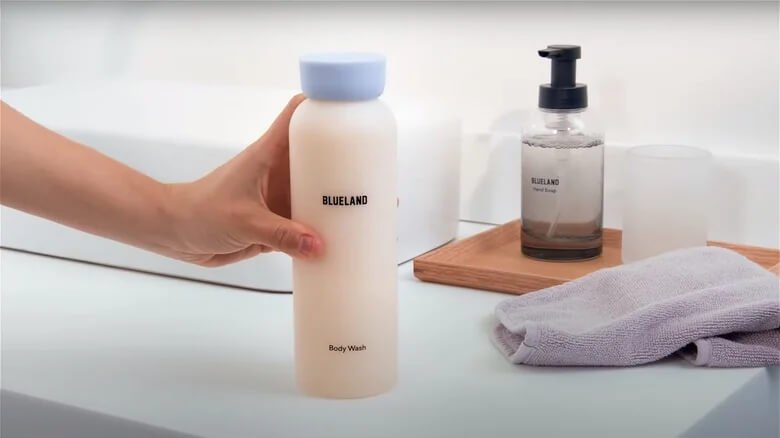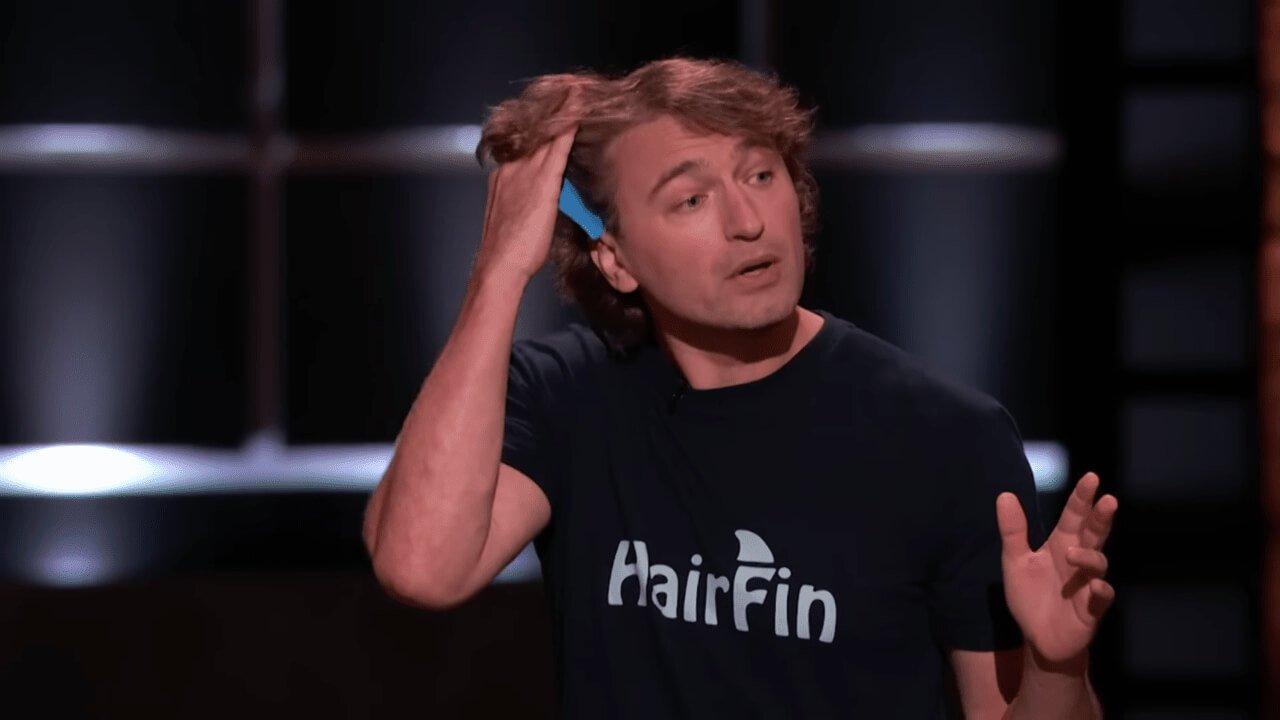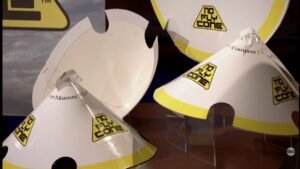Let’s get one thing straight—Shark Tank doesn’t guarantee anything. Sure, you pitch, you smile for the cameras, maybe you even shake hands with a Shark. But does any of that translate to real business? That’s the million-dollar question—or, in Blueland’s case, the $13.5 million question. Rewatch Season 11’s opening episode and you’ll see Blueland come in with slick packaging, a punchy mission, and a valuation that had even the Sharks blinking. Did they just sell another eco-product, or did they lay down the blueprint for the next big sustainable brand? Let’s break down how Blueland fought for a deal, played the long game, and why their story is a masterclass for any founder with guts.
Contents
Toggle2. Founders and Their Backstory
Forget the trust-funds and smooth talkers—you want grit, not gloss. Blueland is the brainchild of Sarah Paiji Yoo and Syed Naqvi. Sarah’s the CEO, but don’t let the title fool you—she’s no armchair founder with a spreadsheet and dream. Her motivation? The same problem every parent is sick of: endless single-use plastic. She saw her baby’s formula bottles stacking up and said, there has to be a better way. That’s street hustle in action. Syed Naqvi brought the real product brains, the formula chemistry, and a ton of technical know-how. If you think co-founders are just for splitting decisions, think again. Sarah and Syed doubled down on a problem that’s everywhere, and they built the answer from scratch. By the time they reached Shark Tank, their story wasn’t just tight—it was lived-in.
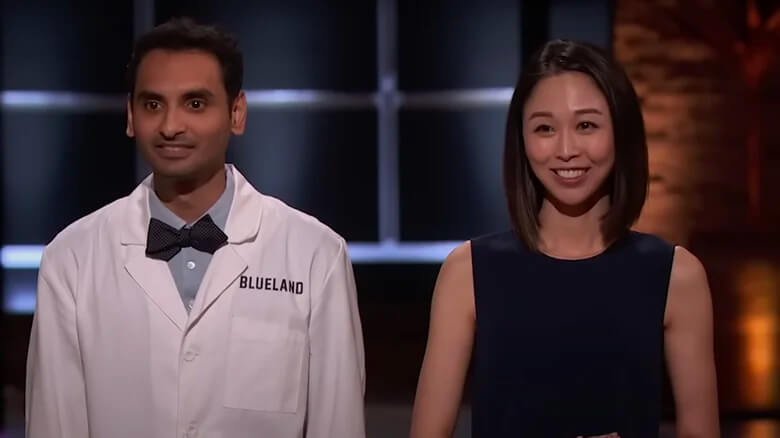
3. The Pitch Process: Braving the Tank
Everyone imagines Shark Tank as this confident walk-on, lights firing, a smooth pitch, then five nodding heads. Nah. Sarah and Syed prepped for months. They binge-watched old pitches on repeat. They researched every Shark’s hot buttons. They drilled tough questions till 2 a.m. Basically, they hustled like any founder who knows that 20 minutes on TV can change everything—or blow up in your face.
Their pitch? Clean, personal, and gutsy. They opened with the killer stat that hooked America: billions of single-use plastic bottles end up in landfills every year. Blueland’s answer? Dry tablets you drop in a reusable bottle, saving cash and the planet. Did it all go perfectly? Never does. There was some stumbling, a slip in demo, but that’s real. Perfect pitches are rare. Sarah and Syed handled Shark skepticism—and by the way, those Sharks are savages when a founder asks for a sky-high valuation.
4. Valuation and Net Worth: Did They Price It Right?
Let’s talk straight—the $13.5 million valuation is gutsy, especially on national TV. Most founders hand out big equity slices just to taste TV money, but Sarah and Syed knew what they wanted. They asked for $270,000 for 2%. It set off alarm bells on the set but also showed they believed their numbers.
So, was it a wild number or just smart defense? As of 2025, word on SharkWorth and across business outlets puts Blueland’s net worth north of $40 million. That’s not pipe dream territory. It’s what you get when your mission matters and your margins make sense. They priced high, stuck to it, and now they own most of their upside while watching the Shark Tank effect drive even more sales.
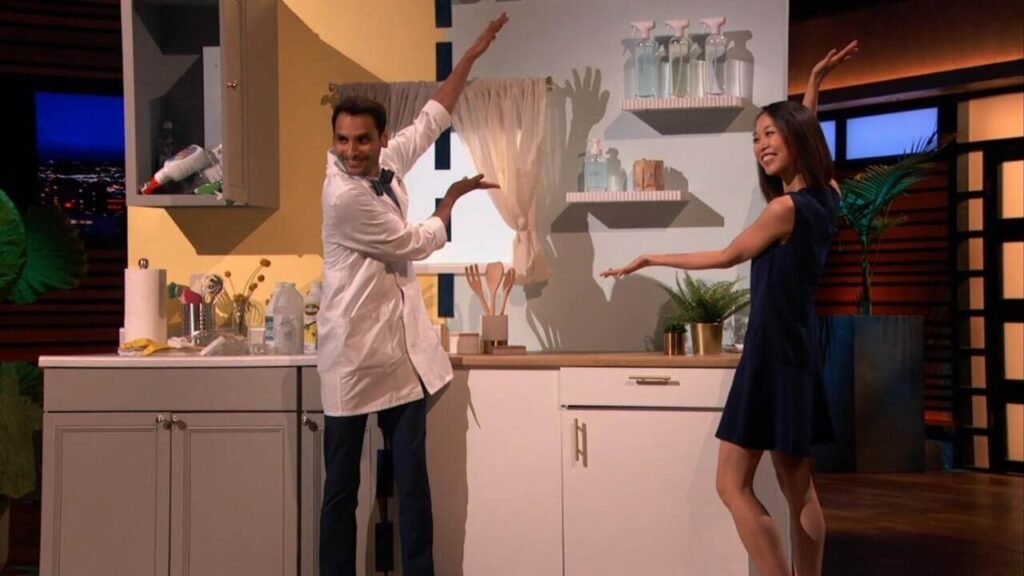
5. Offers, Tension, and the Final Deal
Here’s where most founders lose their shirts: desperation when the Sharks push for a deal. But Blueland didn’t flinch. Lori Greiner and Daniel Lubetzky came in, classic tag-team, wanting 10%. That’s a heavy give for a fresh company. Kevin O’Leary—Mr. Wonderful—smelled a brand with real legs. His pitch? $270,000 for just 3%, plus a $0.50 royalty until he got paid back.
A royalty isn’t always pretty, but it means the founder doesn’t lose a giant chunk for good. Sarah and Syed took the offer. That’s not rookie energy—that’s knowing the game: small equity, short-term royalty, big long-term control. I’ve watched other founders get greedy or nervous and blow good deals. Blueland knew the line.
6. Blueland’s Moves After Shark Tank
A lot of companies ride the TV wave, cash in quick, then coast. Blueland? Not even close. They went full throttle. They dropped more than 10 new products—laundry, dishwash, body wash, toilet cleaner, you name it. That’s true execution, which is everything when demand spikes after prime time.
They didn’t just expand SKUs, either—they went hard on mission. To this day, Blueland claims to have eliminated over a billion single-use plastic bottles. That’s not marketing fluff. It’s the number that drives viral WOM and keeps them differentiated from just another green product.
Kevin O’Leary? He’s still in the picture, but he’s not micromanaging. The deal stood, and he pops up on Blueland’s channels sometimes, but the founders run their own show. That’s the best kind of post-deal support—open doors, smart press, and zero hand-holding.
7. Is Blueland Still Winning in 2025?
Here’s what matters: outlasting the buzz. Too many companies peak after the episode, then fade away—remember ToyGaroo? Yeah, me neither. Blueland? They’re not just alive, they’re pulling in more sales, getting glowing reviews, locking up deals in big retail. In 2025, customers still reorder, and their eco mission fits every new regulation. Their online presence is strong. Their product line is growing. Blueland didn’t just survive TV—they stomped the DTC and retail game.
Are there threats? Every day. Competition is everywhere. But Blueland has homegrown momentum. Their brand stands for something. That keeps retention high and replacement low—a playbook a lot of new founders miss when chasing fast money.
8. Lessons for Entrepreneurs: What Blueland Got Right
Most entrepreneurs focus on the Shark Tank moment. But victory is in the grind before and after. Here’s the Blueland playbook:
- Know your numbers. Their valuation was bold but backed with real growth and smart projections. Don’t just guess—study your margins, your CAC, your LTV.
- Sell a movement, not just a mop. Sarah didn’t just pitch a cleaning tablet—she made you feel replacing plastic was urgent, not optional. That’s why the brand has legs, not just SKUs.
- Hold your ground. I’ve seen founders give up 30% for a shot at fame. Blueland took some heat, but protected their stake, and it paid off.
- Execute fast. Post-show, they didn’t freeze. They launched. They iterated. They told their story a hundred times in new places. Momentum kills copycats.
- Take smart money. Kevin O’Leary wasn’t just capital—he was press, discipline, and connections. Royalty sounds rough, but for cash flow, it’s better than perpetual dilution.
Blueland’s founder playbook is accessible: prep hard, stand tall, launch fast, and always own your mission. Every time.
9. Conclusion: The Reality Behind the Spotlight
Don’t believe the myth that any Shark Tank deal is a golden ticket. Businesses don’t grow just because your cousin saw your episode. Blueland made Shark Tank the start of their breakout story, not the end. They built credibility, executed product launches, and stayed hungry. Sarah Paiji Yoo and Syed Naqvi ran with the attention, not from it.
Here’s my take: Most startups fizzle after a TV cameo. Very few keep the energy, the mission, and the numbers working when the lights switch off. Blueland is one of those rare exceptions—not because of TV fame, but because they had hustle, clarity, and guts. If you want to know if Shark Tank changes a business, ask what happens a year later—and check if the founders still look like they’ve got something to prove.
FAQs
1. Is Blueland still in business after Shark Tank?
Yes, Blueland is very much alive—bigger team, broader product line, and customers who keep coming back.
2. Did the deal with Kevin O’Leary actually close?
Yes, the royalty/equity deal closed. Kevin’s still attached, but the founders run the day-to-day.
3. What is Blueland’s estimated net worth today?
As of early 2025, Blueland’s net worth is over $40 million, according to SharkWorth.
4. Has Blueland expanded its product line since the show?
Absolutely—they’ve gone way past cleaning sprays. Laundry, dishwasher pods, even body wash and toilet cleaner.
5. How much plastic waste has Blueland saved so far?
They claim to have eliminated over one billion single-use plastic bottles and counting.
6. Do the founders still run the day-to-day at Blueland?
Yes, Sarah Paiji Yoo and Syed Naqvi still call the shots. Investor input, but no outside steering.
7. What was the biggest challenge Blueland faced after Shark Tank?
Handling explosive demand and rapid scaling, especially keeping up with supply and logistics.
8. Can new startups still take the same approach and succeed on Shark Tank?
Yes—with prep, mission-first branding, and real numbers. But it’s about what you do after the cameras stop rolling.
Look, being on Shark Tank is flashy. But Blueland is proof that the real business is what you do next. Stay hungry. That’s how you build something that lasts longer than any TV buzz.

